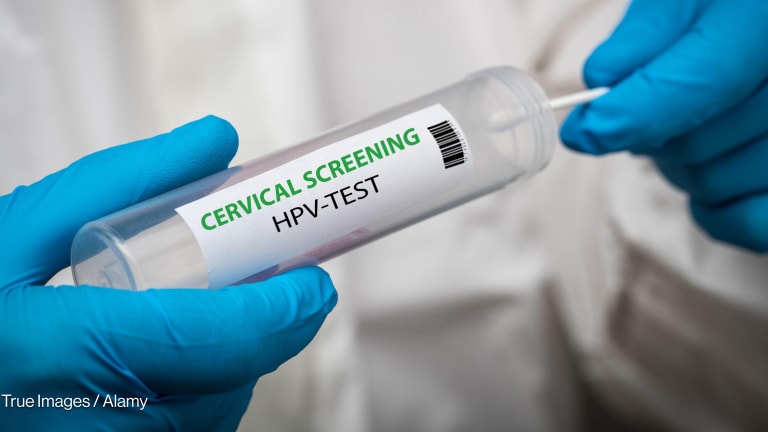
The children of Somalia bore the brunt of the pandemic and continue to shoulder the costs of careless interventions. During last year’s global oxygen shortage, Somalia was at the bottom of the heap.
The Ministry of Health could only source oxygen from one private plant in Somalia, so we were forced to divide oxygen concentrate, typically just enough for one patient or between two or three children. We were forced to watch them fight for breath and for their lives that had barely begun. The oxygen crisis is a prime example of how the world's poorest nations — and particularly their women and children — have been left behind by the international community.
Thankfully, September marked a milestone in Somalia’s fight against COVID-19, with the installation of Somalia’s first public oxygen plant — donated by the Hormuud Salaam Foundation.
Why air pollution conversations leave out women's health
While conversations on air pollution in the public discourse are centered on children and low-income households being the worst hit, women aren’t seen as being as vulnerable despite the mounting evidence.
The private sector stepped up where the international community failed. But a single oxygen plant is only a band-aid. And the fact that the local private sector had to do the job of an international coalition is indicative of the international community’s much larger failings. From meaningful vaccine equity to long-term infrastructure investment, we urgently need the international community to step up and prioritize women and children.
We need a sustainable supply of vaccines. Even before COVID-19, 1 in 8 children in Somalia were dying before they turned 5. It is a shocking fact of life that many mothers don’t see their children reach school. Yet, with only 1% of Somalia’s population vaccinated, pregnant women are now too scared to visit the hospital due to COVID-19.
Missed appointments and inoculations are putting the most vulnerable at greater risk of respiratory infections, measles, and malnutrition, while straining our nascent health care system. However, COVAX continually fails to meet its targets — there’s currently a shortfall of nearly a third. Yet, at the same time, more than 100 million COVID-19 vaccine doses are due to expire and be “thrown away.”
Prioritizing women and children doesn’t simply mean naively offloading soon-to-expire vaccines, such as the vaccines often earmarked by the Gavi, the Vaccine Alliance’s scheme. Two weeks is not enough time for them to make it for those hardest-to-reach.
Sustainable supply requires engagement with local health officials to understand and tackle the localized difficulties of distribution and storage. For example, if Somalia was first in line for innovative new treatments such as the Merck COVID-19 pill, this could be revolutionary in treating hard-to-reach pregnant mothers in rural areas.
To help us tackle the problem at the source, the international community must urgently invest in national vaccine production. This starts with urgently passing the waiver of the Trade-Related Aspects of Intellectual Property Rights, or TRIPS, through the World Trade Organization. Conspiracy theories about vaccines have thrived in Somalia due to the fact that vaccines have arrived late from unknown sources.
Through technology transfer and meaningful pharmaceutical partnerships, we could create localized production centers that tackle vaccine hesitancy while meeting local demands. It would pay dividends in creating infrastructure and easing the development of new products crucial for the future. This is not a matter of market incentive but moral incentive.
“Women and children first” is an unwritten rule of emergencies, this instruction cuts across borders, cultures, and professions.
—It is important to stress that commitments from the international community must be sustained to help us recuperate from COVID-19 disruption. In August, a Somali official submitted the paperwork for emergency funding for syringes to administer vaccines. COVAX responded that everyone was on holiday, so we were forced to use stockpiles of syringes reserved for childhood measles vaccinations. This could cause a shortfall in the years to follow and could be disastrous considering the interruptions to routine immunizations.
We need broader investment in health infrastructure. In the United Kingdom, and in richer countries, resources were available to continue to support maternity care. But in Somalia we had no other choice but to divert our limited resources to the pandemic response. Reproductive, maternal, newborn, child, and adolescent health services experienced between a 5% to 50% disruption, while immunization services were disrupted by between 5% to 20%.
COVAX now forecasts that health systems will need to deploy nearly twice as many COVAX doses as they have in the last three months. To meet this goal, while protecting mothers and children, we need the investment to shore up the foundations of primary care. This could include training midwives, nurses, laboratory personnel, and pharmacists, alongside investment for supplies such as laboratory solutions, family planning commodities, and health kits for deliveries.
“Women and children first” is an unwritten rule of emergencies, this instruction cuts across borders, cultures, and professions. The international community cannot turn their back on Somalia’s health system now, for it is mothers and children who will be most harmed.








